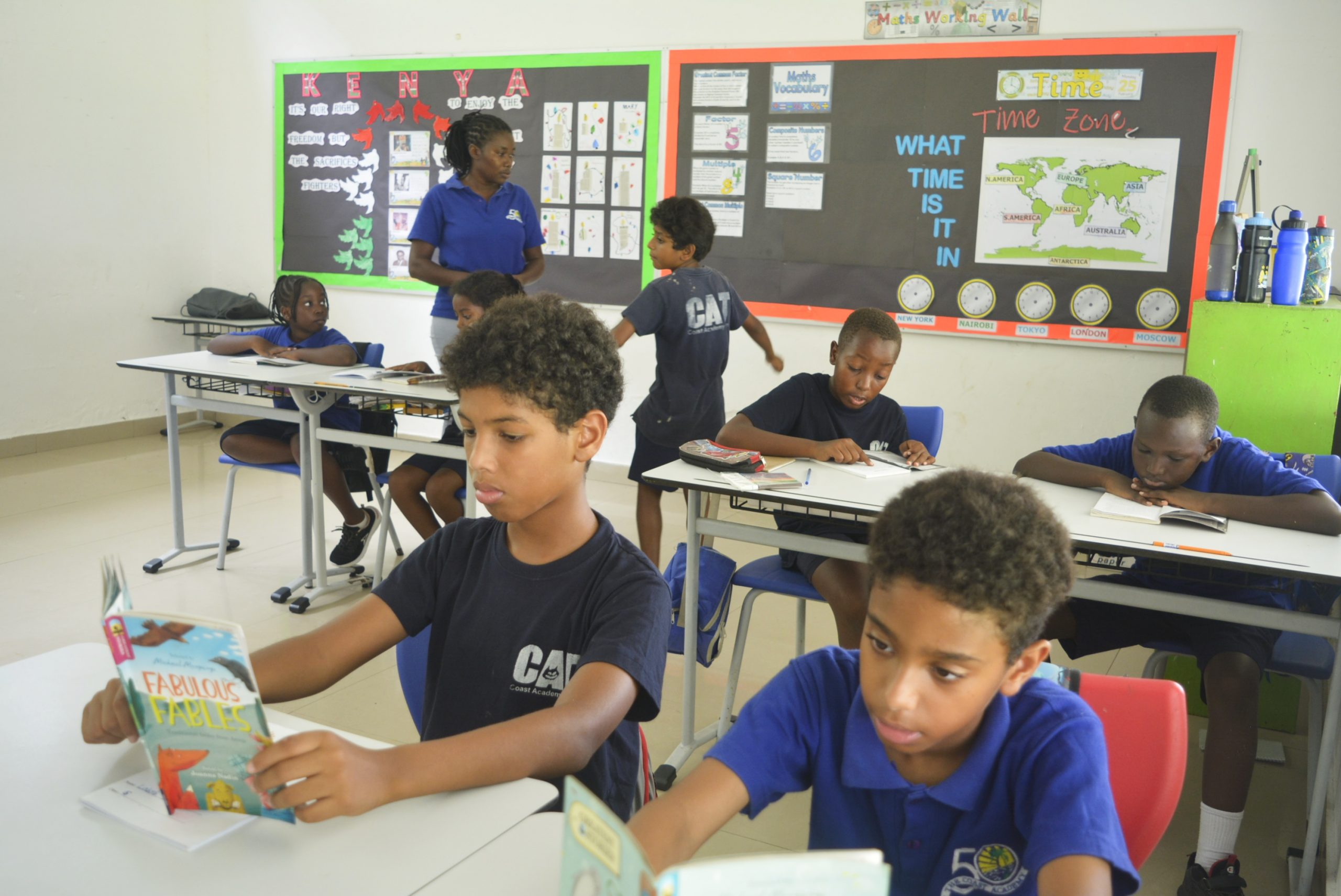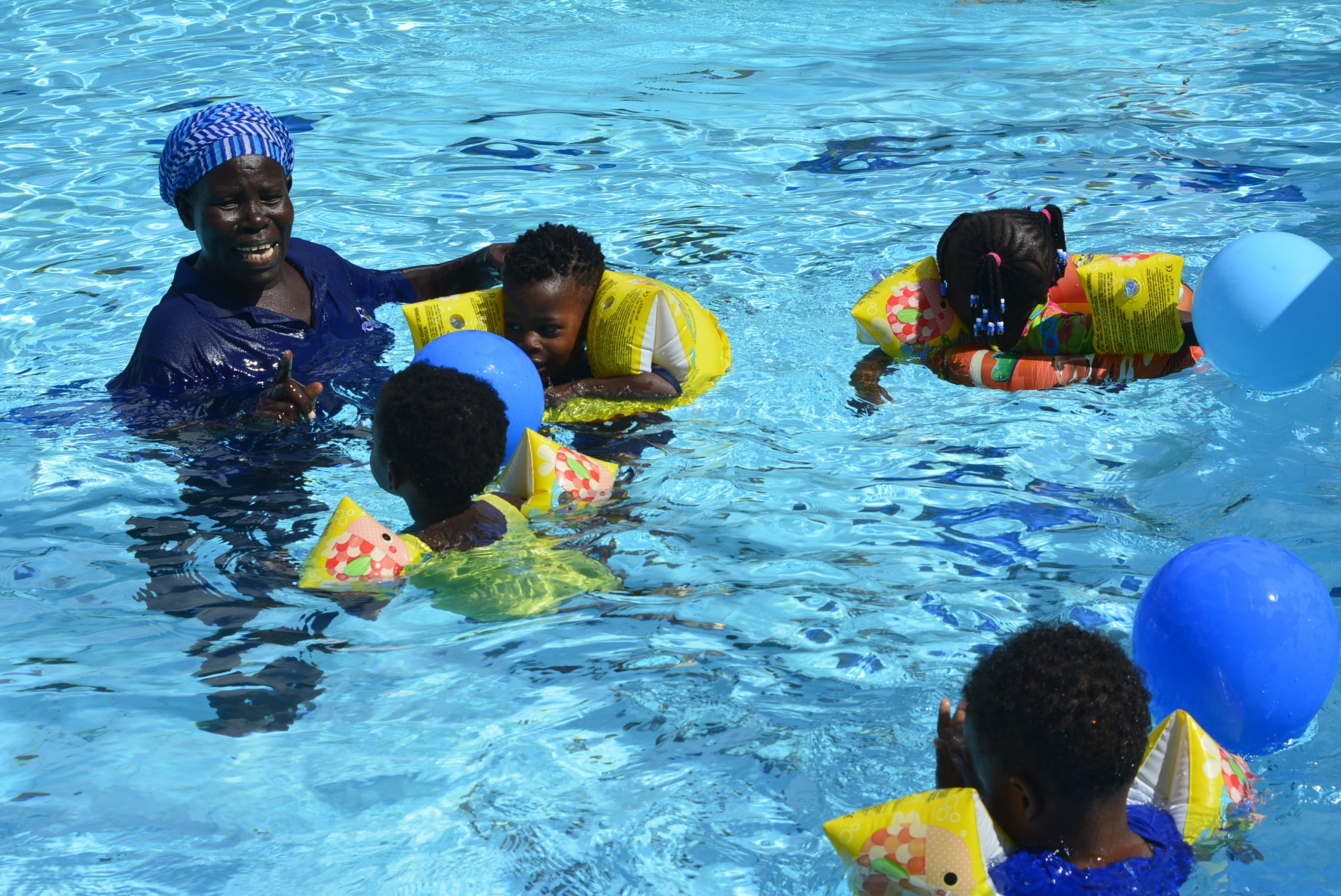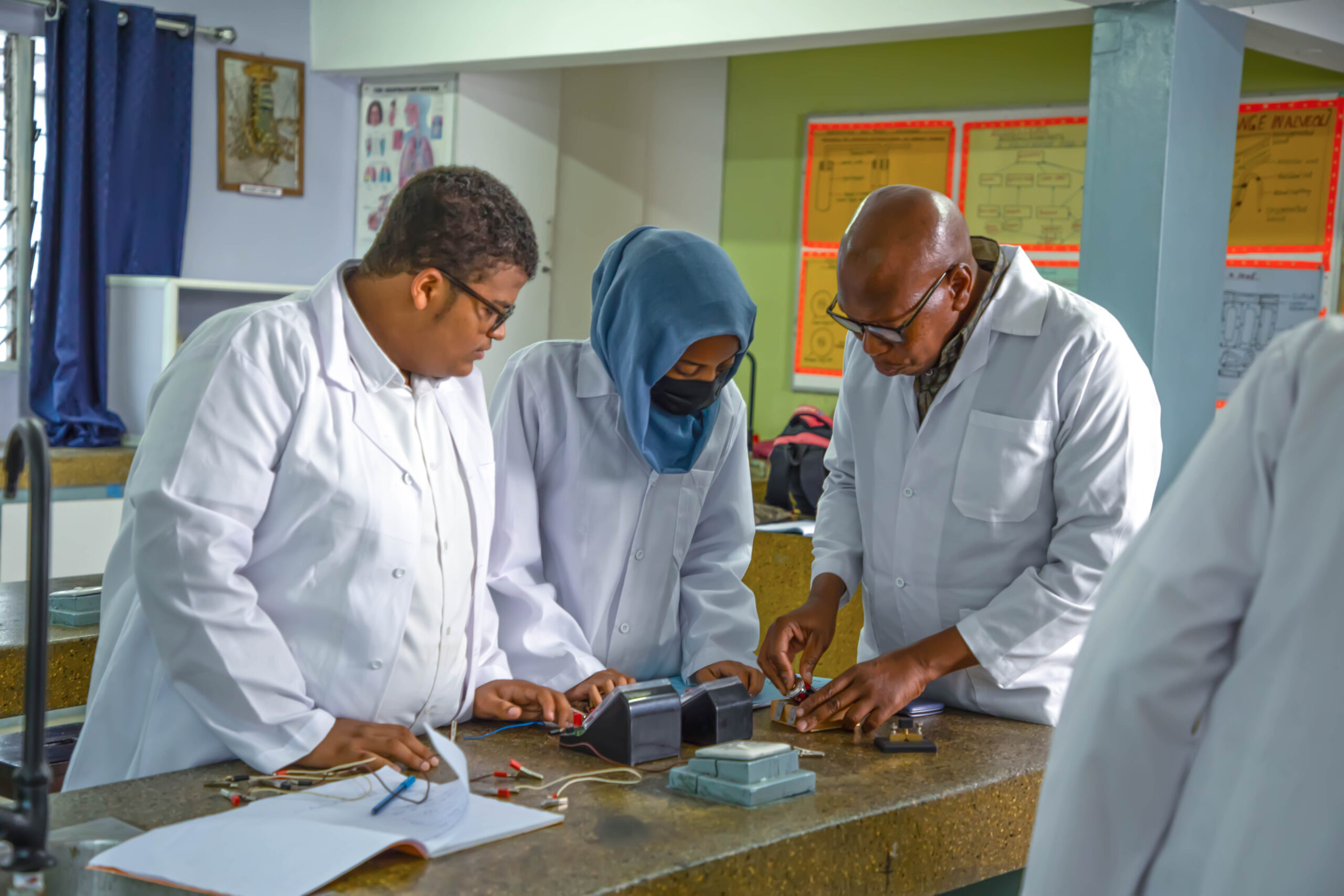
8 SIMPLE WAYS TO STUDY MORE EFFECTIVELY

While there is no ‘one-size-fits-all’ study technique, there are methods that one can use to ensure a better understanding of concepts and the ability to recall. What works for one person will not necessarily work for another. Through consistency and planning your study time accordingly, you are bound to achieve your full potential by developing your memory and academic excellence.
-
Plan

Making a realistic schedule will help you avoid cramming and procrastination. Use a planner to keep track of deadlines, dates, and times so you do not forget anything important. Studying in small bits over time will help in remembering unlike staying up all night to cram before exams. Aim to schedule some study time each day.
2. Study In An Appropriate Environment

Pick a quiet corner in your room/ house or in the school library that is properly lit and well-ventilated away from distractions and preferably on a desk. Keep your phone away and on silent.
3. Prioritize
Start with the hardest tasks first. Incorporate flash cards if possible as they are excellent in boosting memory. Use applied learning if you are having trouble remembering. You can do this by thinking about something that applies to your subject of study in real-life situations. Find out what works best for you.
4. Take Care Of Yourself
 Eat well, sleep, and exercise. Getting enough sleep is crucial for good memory. A balanced diet with lots of water helps your brain in absorbing new information, while exercise helps reduce stress. Nuts, dark chocolate, grapes, and apples are supper foods for the brain. Avoid sugar, carbs, and processed foods.
Eat well, sleep, and exercise. Getting enough sleep is crucial for good memory. A balanced diet with lots of water helps your brain in absorbing new information, while exercise helps reduce stress. Nuts, dark chocolate, grapes, and apples are supper foods for the brain. Avoid sugar, carbs, and processed foods.
5. Break It Up
 Tackling individual parts is much easier than tackling the whole. Breaking a big assignment into smaller bits will make it easier to manage and understand. Always save your least challenging tasks for the end of your study session.
Tackling individual parts is much easier than tackling the whole. Breaking a big assignment into smaller bits will make it easier to manage and understand. Always save your least challenging tasks for the end of your study session.
6. 30-40 Minutes Per Study Session
 Our brain only absorbs information from the first and last 15 minutes of studies. This means that anything studied outside that time frame will likely be forgotten. Breaks are good for your mental health. They also improve your attention span, your creativity, and your productivity.
Our brain only absorbs information from the first and last 15 minutes of studies. This means that anything studied outside that time frame will likely be forgotten. Breaks are good for your mental health. They also improve your attention span, your creativity, and your productivity.
7. Join A Study Group
 Forming study groups with your friends is a great way to help each other and challenge each other to better. It helps develop good study habits, teamwork and boosts confidence.
Forming study groups with your friends is a great way to help each other and challenge each other to better. It helps develop good study habits, teamwork and boosts confidence.
8. Reward Yourself
 Reward yourself for a job well done after every study session. This in turn prevents burnout, uplifts your mood, and makes you look forward to the next study session. You could go for a walk, take a nap, indulge in your favorite snack, or hang out with your friends.
Reward yourself for a job well done after every study session. This in turn prevents burnout, uplifts your mood, and makes you look forward to the next study session. You could go for a walk, take a nap, indulge in your favorite snack, or hang out with your friends.
Read More

7 Effective Classroom Management Strategies at Coast Academy

Managing a classroom requires skills. A good teacher needs to connect with kids and keep them focused on the lessons. Below are 8 habits for good classroom management to ensure that the class feels safe, comfortable, and pleasant place for everyone.
1. Build A Relationship With Each Student

Our teachers are required to get to know each student as an individual and to Identify and praise individual milestones. Days begin with a greeting and a reflection of the previous day and end with a wave of goodbye while they leave for home.
2. Establish the Rules

Each teacher has individual classroom protocols in place to handle routine issues that occur in every classroom. These involve how to raise concerns in class, how to ask for permission, and general dos and don’ts in class. All children are familiar with these rules and when a student breaks a rule, they own up to their mistakes and act accordingly. We maintain a light atmosphere where students feel free to work and thrive, to try, laugh, and learn.
3. Modeling Way Of Ideal Behavior

Our teachers act as the ideal model of what is expected of the learners. Children learn best through modeling or copying so they are most likely going to act as they see the adults close to them act. At Coast Academy, we encourage the students to:
- Maintain eye contact
- Let one another speak uninterrupted
- Raise concerns about one another’s statements in a respectful manner
4. Have A Plan

All our teachers have work plans that they share it with their students, too. A plan can be simple “You have 10 minutes to practice on your own, after which everyone will make a presentation.” Going through the day’s agenda hooks the students interest from the word go and lessens the chances of misbehavior.
5. Engaging The Learners

Good teachers are enthusiastic about the subjects they teach they encourage classroom participation by asking questions and giving them discussion topics. They walk around the class interacting with the children and offering assistance where needed.
6. Show Love and Kindness

Students are most successful when they feel liked. Our teachers show care and compassion towards the learners. A smile goes a long way. Good work is applauded and Children are allowed to make mistakes and learn from them. This in turn improves academic and behavioral performance.
7. Be Fair and Just

Favoritism is completely forbidden at Coast Academy and all children are treated equally. In cases of behavioral issues, applicable disciplinary measures are applied that do not involve public shaming.
8. Hold Parties

Our termly classroom parties act as an acknowledgment o students’ hard work throughout the entire term, motivating them to keep it up, breaking classroom monotony, and creating room for the students to mingle, share and bond and have fun.
Read More

IS IGCSE THE EASIER OPTION? DEBUNKING THE MYTH

IGCSE exams can be easy or difficult based on the aptitude of the child.
With many parents withdrawing their children from the CBC and enrolling them into the Cambridge curriculum, the most frequently asked question is, is it going to be too basic for my child? For years, many people have believed that IGCSE is the easier option. Is this really the case?
1. The key difference is the lack of rigorous coursework in the GCSE qualification.

IGCSEs were made for international pupils and so they lack the intensive coursework that is found in other curriculums. They vary in content and mode of delivery. Cambridge is student-centered, meaning is not a one-size-fits-all. It gives a fighting chance for students of all levels as they can still complete practical and coursework elements and they gain an IGCSE grade that they would not be able to achieve under any other curriculum.
2. It requires active learning, recognition of student diversity in ability, and continuous assessments

IGCSE includes a mixture of exams, coursework, and practical assessments. Unlike in other curriculums where getting a good score requires memorization of concepts, the IGCSE exam is designed so that getting a score of 8-9 requires students to put in a lot of effort to understand the detailed knowledge content of each field. It also prepares students for a more intensive program.
Benefits of Acing the IGCSE

Have high job opportunities and expertise.
Ability to study abroad in countries with developed education.
Develop work skills to easily adapt to social life.
GCSEs are internationally recognized as highly-respected official high school qualifications and an entry standard for admission to further academic study in the UK and beyond.

Undergraduate courses at UK universities will specify that applicants need to meet certain requirements at the IGCSE level to receive an offer.
Many employers also require job applicants to meet their minimum requirements in Maths and English IGCSEs (or equivalent). From there, we can infer that the higher the IGCSE score, the more likely it is to succeed in life.
Read More7 Effective Classroom Management Strategies at Coast Academy

5 REASONS WHY PLAYGROUP IS IMPORTANT

First-time separation between a parent and child can be overwhelming for both but the benefits of enrolling your child in a playgroup are worth it. For most kids, it takes 2 weeks or even more to adjust and adapt to the new environment, but at Coast Academy, most children usually settle in within the first week. All children are respected and their individuality and differences are embraced. Here are 5 reasons why Playgroup is Important for your child’s overall growth.
1. DEVELOPS SOCIAL SKILLS

Statistics state that social skills development in children starts between the ages of 1-3. Most kids today spend the whole day with their nannies at home. This could slow down their growth and social skills. In playgroups, children get to socialize, which helps build life skills such as self-expression, sharing, cooperation, consideration, and mutual respect, which also add up as conflict resolution skills. Our very able and qualified team inspires the children to thrive and maximize their potential by exploring and discovering the world around them.
2. ENCOURAGES PHYSICAL ACTIVITY

While most children spend their entire day at home on screen time, playgroups offer an enabling environment for a variety of age-appropriate activities ranging from physical activities such as running, jumping, balance, and swimming to block play, painting, and molding which build the children’s gross and fine motor skills, hand-eye coordination and balance.
3. DEVELOPS CREATIVITY, IMAGINATION, AND MOTOR SKILLS

90% of Brain growth happens before kindergarten. Exposing your child to a playgroup environment will trigger their creativity and imagination through dress-up, role plays with the other children, music, puppet play, and other games. Storytime aids in speech, language, vocabulary development, auditory perception, and imagination whereas visual perceptions are developed through activities such as Identifying different shapes and colors and building puzzles.
4. BUILDS CONFIDENCE AND INDEPENDENCE
 The warm and loving nature of our staff helps develop the child’s confidence and resilience. Children that go to playgroup turn out to be strong and independent individuals as they learn to take care of themselves and show a sense of responsibility and a desire to be competent. They learn how to manage separation anxiety, clean up after themselves after free play, make choices throughout the day, and adapt to a new environment.
The warm and loving nature of our staff helps develop the child’s confidence and resilience. Children that go to playgroup turn out to be strong and independent individuals as they learn to take care of themselves and show a sense of responsibility and a desire to be competent. They learn how to manage separation anxiety, clean up after themselves after free play, make choices throughout the day, and adapt to a new environment.
5. PLATFORM FOR BUILDING RELATIONSHIPS

Playgroup is hugely beneficial in building trusted relationships with each other and with their teachers and helpers. Our small class sizes help in developing close, healthy, and positive relationships. It also serves as a base for parents to meet, make friends, learn parenting tips, and network. We pride ourselves in maintaining close, healthy, and positive relationships with our parents and most importantly, vibrant and happy children.
Read MoreThe Coast Academy Cultural Day Concert 2022
Recently, The COAST Academy held its annual cultural day which, was marked with dances from different cultures ranging from the local Kenyan tribes to countries as far as Italy. “The Coronation of the King” was the title of the play, which left parents and invited guests awed at the impeccable talent displayed by the children. The event was graced by 2 of our directors: Mr. Mumo and Mr. Vonza Mwenda, and our chief guest Mr. Abdikadir Kike.

























We thank all our invited guests, parents, students, and the entire Coast Academy fraternity for the success of this event.
Read More
5 Benefits of Field Trips In A Child’s Education

Field trips offer children first-hand learning experiences. Giving equal weightage to both indoor as well as outdoor activities makes the children well-prepared for the outside world. Field trips not only expose the student to practical learning through sight, taste and smell but are undoubtedly one of the best ways to promote team spirit over several fun-filled knowledgeable activities. This term, the Coast Academy took different groups of students on different field trips applicable to their curriculum. Some of the most memorable moments in a person’s life are the field trips taken during school years. Below are 6 benefits of a field trip in a child’s education.
1. Academic growth
 Students who go on field trips tend to perform better than students that are only limited to classroom learning. A child is most likely to remember something they saw rather than just sitting in class. These trips reinforce what the students learn in class which in turn makes it easier to understand better and remember.
Students who go on field trips tend to perform better than students that are only limited to classroom learning. A child is most likely to remember something they saw rather than just sitting in class. These trips reinforce what the students learn in class which in turn makes it easier to understand better and remember.
2. Interactive Learning

In a classroom setting, engagement is usually lost through the memorization of materials. Field trips give more room for interacting with the subject of study thus making them more relevant and relatable. i.e. learning about rocks in a Geography class is not as relatable as seeing and feeling each type of rock which makes it easier for them to remember.
3. Feel of Real-world experience

This is especially when students visit historical sites that show the history of a people. Museums and Forts make the students gain historical empathy as they are taken around and get to see the way of life of the people of the past, rooms where freedom fighters were locked and the equipment used in historical wars. This in turn brings the history lessons to life. Students also get to see how class lessons are applied in real life.
4. Breaks Classroom monotony

Taking the students out on a field trip is an excellent way of breaking the daily classroom monotony. Lessons become more lively towards a trip as the students look forward to the “break”. They often serve as a powerful motivator for students.
5. Access to Different Environments

Going out on a field trip is an excellent exposure to a new environment different from the one at home. Taking children who have been born and raised in the city to the farm exposes them to an entirely different setup from what they have been accustomed to. Sometimes state exams include questions that do not bridge the gap between rural and urban students and fieldwork is a great way to build the bridge.
6. Social Interactions

Field trips create an opportunity for students to interact with fellow learners from different classes. They get to exchange ideas, learn from each other and make new friends. A timid child is also more likely to be more cheerful in such a setting than in the contained classroom setting.
Read More
QUALITIES OF A GOOD TEACHER

We all have at least 2 teachers that we remember from our school years. A teacher that made you look forward to their lesson because of how approachable kind and friendly they were, and a teacher who was always harsh and insulting. Students dreaded classes of the latter teacher because of her hostile approach. This plays a big factor in students’ performance. Below are 7 qualities of a good teacher.
1. Patient And Approachable
 Patience is an essential virtue in a teacher. It is easier for a student to approach an empathetic teacher for assistance than a hostile one. A student would rather suffer in silence than be humiliated by a teacher in class. A good teacher reassures their students which in turn boosts their self-esteem.
Patience is an essential virtue in a teacher. It is easier for a student to approach an empathetic teacher for assistance than a hostile one. A student would rather suffer in silence than be humiliated by a teacher in class. A good teacher reassures their students which in turn boosts their self-esteem.
2. Passionate About Their Job

A good teacher is one that is excited and enthusiastic about their job. This will make them give their best and the students will in turn have more willpower to study and perform well. Class performance is also likely to be affected by this because the teacher will strive to ensure that no child is left behind.
3. Excellent Communication And Interpersonal Skills.

A class consists of children with different capabilities. It takes a teacher with excellent verbal and non-verbal communication to make sure that the message has been received and understood by each and every one in the class. This also helps in choosing the right language to correct the students without being harsh. Nonverbal cues can also help spot a child needing extra attention/help.
4. Qualified And From A Renowned Institution
 There is nothing as good as knowing your content. A good teacher is one that prepares for class and has her content at her fingertips. This prevents being caught off-guard by a question from the student which will make you lose your credibility. It also makes you gain respect from the students and parents.
There is nothing as good as knowing your content. A good teacher is one that prepares for class and has her content at her fingertips. This prevents being caught off-guard by a question from the student which will make you lose your credibility. It also makes you gain respect from the students and parents.
5. Creative And Innovative
 Routine creates boredom. A good teacher is one that comes up with different, innovative, and fun ways to engage the students. This can be done in a variety of ways, i.e group discussions, inquiries, field excursions, and conducting experiments. This in turn breaks the monotony.
Routine creates boredom. A good teacher is one that comes up with different, innovative, and fun ways to engage the students. This can be done in a variety of ways, i.e group discussions, inquiries, field excursions, and conducting experiments. This in turn breaks the monotony.
6. Sets High Expectations
 A good teacher challenges her students to do their best, surpass their expectations and explore their full potential. Set daily goals, and weekly goals termly goals and review them accordingly.
A good teacher challenges her students to do their best, surpass their expectations and explore their full potential. Set daily goals, and weekly goals termly goals and review them accordingly.
7. Rewarding
 Acknowledgment has always been like a sweet pat on the back. A good teacher praises her students for a job well done, improvement and good progress. This in turn pushes the students to do even better next time. A great sense of humor also creates a relaxed learning environment.
Acknowledgment has always been like a sweet pat on the back. A good teacher praises her students for a job well done, improvement and good progress. This in turn pushes the students to do even better next time. A great sense of humor also creates a relaxed learning environment.
Read More

IMPORTANCE OF EDUCATING THE GIRL CHILD

Half of the girls in Kenya are getting little to no education. One in 2 girls in Kenya is married at the tender age of 19. It is a fundamental right of the girl child to receive a quality education. All learning centers should ensure that they provide a friendly, safe, and conducive environment for the safety of the girl child. Educating the girl child is like educating the entire community. Below are 5 reasons for educating the girl child.
1. Increase in literacy level

When girls are educated, they Acquire the knowledge and skills necessary to compete in the labor market. This gives them the will and confidence needed to join the employment task force.
2. Ability to Make Smart Decisions

Educated women make better decisions when it comes down to healthcare, and marriage and are less likely to endure domestic abuse. Social skills, problem-solving, and critical thinking skills are also impacted and in turn, can help in settling disputes in the community.
3. Reduction of Child Marriages.
If all girls went to school and proceeded to finish secondary, it would have a great impact on the number of early marriages in school-going girls.
4. Reduction in Child Mortality Rates

According to the United Nations Girls’ Education Initiative, children of educated mothers are twice as likely to survive past the age of five. This is because they are more aware of the importance of good health care and would ensure that their children get all necessary vaccines required.
5. Continuation of Cycle

Education equips one with the socio-emotional and life skills necessary to adapt to the changing world. A girl that is educated will definitely want the same for her daughter’s education. They will beat all odds to ensure that their daughter gets quality education.
6. Economic Growth

Women invest their salaries into their families and their community at large. This in turn helps in poverty eradication. Educating the girl child will mean having more women in the workforce thus increasing the labor force needed for the country’s economic growth.
7. Self-Reliance

An educated woman is able to be self-sufficient. She is capable of taking care of her own needs without being dependent on either her husband or any other relative for survival.
Read More
HOW TO TELL IF YOUR CHILD IS HAPPY AT SCHOOL

1. Talk to them about school

Make it a habit to discuss the day-to-day activities later in the evening. Do not be quick to condemn and don’t take matters lightly. Let them know that they can trust in you which makes you their go-to person for anything.
2. Attend school functions

Be sure to attend all school events such as Parent-teacher-student conferences, sports day and cultural day. Take any opportunity to go to the school and see how your child interacts with other children. That will give you a feel of how he is in school.
3. Engage the Teacher

Make regular follow-ups with the class teacher. This will give you an insight into how your child is fairing in school and will also alert you if it so happens that your child starts exhibiting peculiar behavior at school.
4. Ask open-ended questions

Do not ask your child questions that require a one-word answer only i.e. how was school today? Instead, ask questions that require them to go in-depth in the answering so that you get a clear picture of things that could be; what happened in class today? What do you do during break?
5. Talks a lot about school

A child that enjoys school will gladly talk about school without being prompted. They will tell you about the activities they did in school, who did what and even show you what they did in school. They will also be very eager to go back to school. (more…)
Read More
5 BACK TO SCHOOL TIPS

Starting a new school year is exciting and can also be filled with anxiety for others, especially those joining a new school. Below are tips to curb the anxiety and prepare your child mentally, emotionally and physically for the new school year.
1. Get Back to Normal School Routine

Resume the normal school schedule a few days before school starts. This will help switch off the holiday mode and activate school mode. It involves going to bed early and getting up early to shower and have breakfast in time for school.
2. Purchase Required School Supply

Take a trip to the stationery supply stores and purchase the required tools such as crayons, story books, geometry sets, etc. Allowing your child to tag along, can make the back to school feel exciting as they get to pick their favorite pens, backpack, or supplementary book. This prepares them mentally.
3. Set Everything Ready

Organize books and stationeries, make sure the uniforms are pressed and school shoes polished. Make the necessary physical preparations i.e. visit the salon or barber to avoid last minute rush. Make the necessary arrangements for transport to and from school.
4. Acquire a Positive Attitude and Mindset.

The right attitude will greatly impact your child’s performance at school. Encourage them to Set a SMART target that will keep them focused even on those subjects that seem to be a challenge. Start the term on a high note and keep going.
5. Do a Pre-Visit to the School

If you are starting a new school, take the child for a pre-visit of the school to familiarize with the premises and if possible, get to meet the new teacher. This will ease the anxiety and help with the transition.
Read More